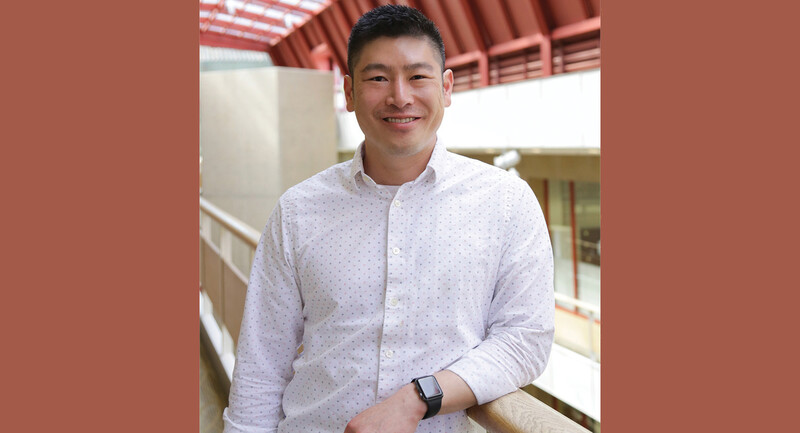With its stained glass windows and vaulted ceilings, the former seminary college that now houses Washington Leadership Academy (WLA), a public charter school in the nation’s capital, looks like something straight out of Harry Potter. But within its stone walls, dorms where priests once slept have been turned into vibrant classrooms, the library has become a cafeteria, and the chapel an auditorium. At this school, appropriately known as “High-Tech Hogwarts,” traditions—for example, freshmen being assigned to “houses” via a sorting hat ceremony—mix with visionary new thinking.
One of only 10 schools to receive a $10 million grant from XQ: The Super School Project, WLA is on a quest to reimagine the way high school is designed—and the way students learn. That mission includes the development of a rigorous, personalized learning curriculum that emphasizes computer science and offers cutting-edge courses in areas like virtual reality. The goal is to immerse the school’s mostly minority, low-income students in technology and give them rich digital learning experiences so they can compete in fields in which they have been historically underrepresented.
“Game-Changing” Skills
Washington Leadership Academy, which opened in 2016, serves 300 9th–11th graders (and will expand to 12th grade next year). Of those, 99 percent are students of color and 85 percent receive free and reduced-price lunch. The students are required to take computer science all four years to gain the foundational skills they need to break into careers in coding and other tech-related fields. These careers are “spaces where they don’t feel like they traditionally belong,” says Natalie Gould, WLA’s director of operations.
“Giving them real skills early on is game changing,” Gould explains. After learning computer science basics as freshmen, all WLA students take AP Computer Science Principles in their second year—an edict that has singlehandedly changed the demographic makeup of the city’s AP exam participation. In 2017, just 31 of the students who took the AP Computer Science Principles exam in D.C. were black; in 2018, 84 black students from WLA alone took the exam. During the same period, WLA more than tripled the number of black girls taking the exam.
“Creators, Not Just Consumers”
With a curriculum focused on project-based learning and design thinking, WLA students are expected to become “tech creators, not just consumers,” says Gould. Students choose content paths that match their interests, taking courses like arts-based computer science and electives such as DJing and music production, advanced coding, and robotics. Some of these courses even translate into “side hustles,” notes WLA cofounder Stacy Kane. Freshmen taking a web certification course, for instance, have used their skills to earn money developing websites for local businesses. And 11th graders put their knowledge into practice with internships at high-tech companies, community-based organizations, and Congressional offices.
But perhaps most innovative is the work students are doing with virtual reality, a cornerstone of the curriculum. Through course projects, WLA students have developed and coded unique virtual reality experiences. One such module follows the harrowing path of a migrant traveling from Guatemala to the Texas border. Another puts users in the front row of a private Prince concert.
With part of its XQ prize money, the school has also hired Capitol Interactive, a local tech firm, to build a virtual reality course module on the Vietnam War. WLA teachers work side-by-side with developers, while students offer feedback and help write scripts. The developers also teach a weekly elective at the school on 360-degree filming, Unity (a game development platform), and 3D modeling.
Partnering with outside organizations is routine: WLA brings in freelancers to assist with projects, hosts “hackathons,” and introduces students to professional computer scientists and other experts. As a lab school, WLA fosters an “open-source” learning culture, posting its resources and curriculum online and sharing ideas with schools across the country.
Aligned with its efforts to reimagine high school, WLA is also shifting to a competency-based learning format. The school has launched a partnership with the online platform CommonLit to develop a Common Core-aligned language arts curriculum that’s self-paced and personalized. In a true “build as you go” approach, a CommonLit staff member visits the school several times a week, providing real-time feedback and coaching to teachers as they simultaneously create and pilot the curriculum.
Summoning Success
Thus far, the unique approach at “High-Tech Hogwarts” is showing strong results: The D.C. Public Charter School Board recently ranked WLA as the number 3 charter high school in the city and number 10 out of 108 charters overall (based on factors such as attendance rates and test performance in English language arts and math). And although still in its infancy, the school already has a waiting list for enrollment. Families are eager to take a risk on an experimental but promising new paradigm of education—one where technology is central to the learning mission.









